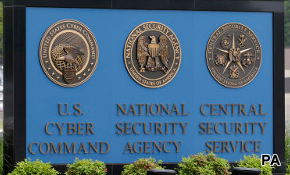(Week of 6/8/2013) Despite the National Security Agency’s claims that the PRISM program tracks only “metadata” like duration of calls and where they go, Americans in the latest Economist/YouGov Poll don’t believe the agency: most think the NSA is also listening in to their phone conversations.
Only 17% think the agency is telling the truth, and the skepticism is widely shared – just 24% of Democrats, 14% of Republicans and 12% of independents believe the Agency. Republicans and independents are especially skeptical: about two in three in each of those groups think the agency is using PRISM to listen in to phone conversations.
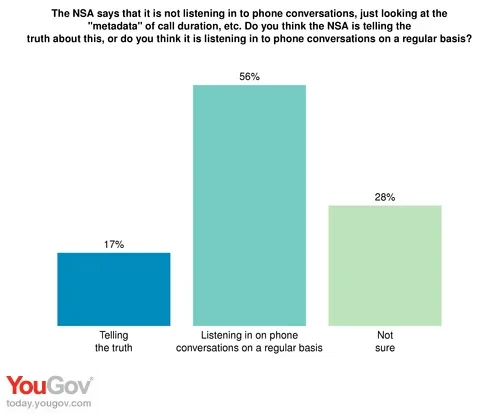
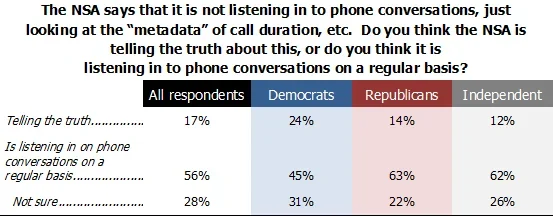
The problems that Americans see with the program are heavy intrusion and little real success: more than half say it is unlikely that the program prevented any terrorist attacks since its inception in 2007. Just over a third think that it has prevented attacks.
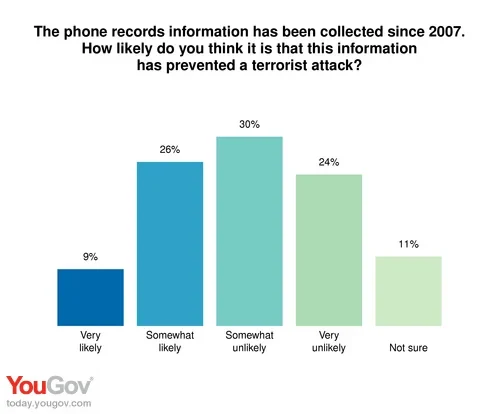
But the other concern is simply government intrusion – nearly two-thirds of Americans think it should be harder than it is now for the government to access private information. Only 8% believe the government needs easier access in order to make Americans more safe.
When it comes to accessing personal information, it’s clear that the public expects a warrant be issued before that access is granted (of course, there was a judicial warrant granted for the metadata that the government now collects on phone records). The only access a majority of the public believes the Constitution grants to law enforcement as a regular part of doing business is to ask you to identify yourself and to provide identification. But even in those circumstances nearly one in four believe a warrant should be required.
Conservatives are the most likely to say a warrant should be required before someone is compelled to identify himself or herself, though a majority in that group still say this can be a part of regular business.
There are several areas where the public is divided, with many saying government access to even more or less public or visible information should be restricted. 40% overall say the Constitution requires a warrant to access a person’s public social network data. Nearly a third say that’s a normal part of government business. 40% say there needs to be a warrant before government agents or police look through the window of your car or house, while 37% think that’s a normal part of business.
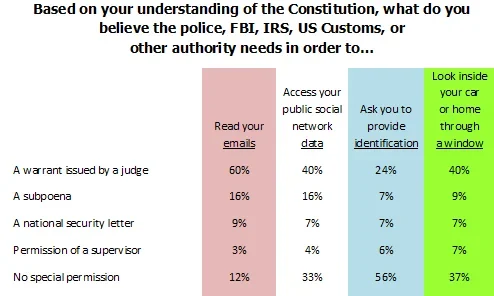
When it comes to the NSA activity now in question, Americans say they disapprove – and by nearly two to one. Democrats are divided, Republicans and independents overwhelmingly disapprove.
But the tables are turned when it comes to the Patriot Act, passed during a GOP Administration, which Republicans feel more positively about than Democrats do. Overall, Americans are about as likely to say that act (which a majority in 2011 believed had prevented terrorist attacks) goes too far in threatening civil liberties as to say it is necessary to help government find terrorists.
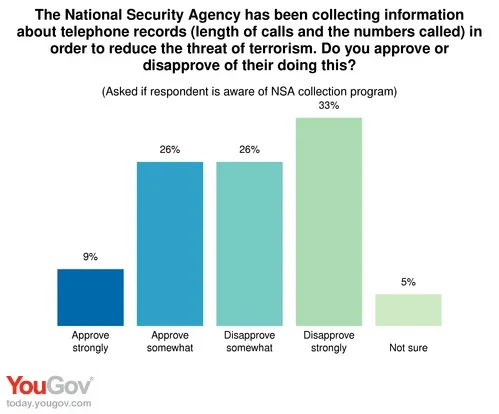
Economist/YouGov poll archives can be found here
Photo source: Press Association
